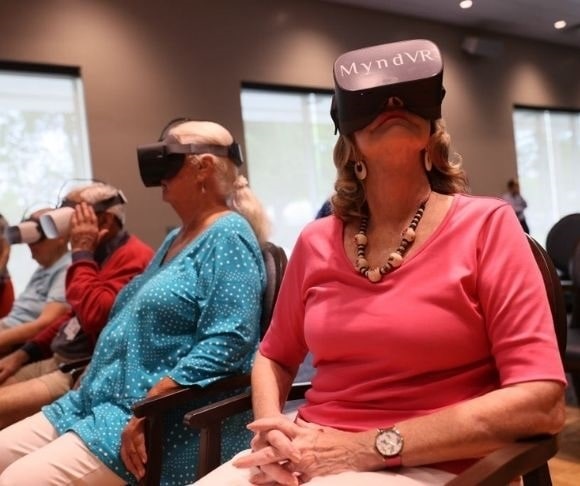
(Photo by Joe Raedle/Getty Images)
The metaverse is designed to be an escape from the real world. But as virtual reality develops, it’s clear that you can’t run from its high prices. Mark Zuckerberg’s company Meta will take a whopping commission of almost 50% on all sales inside its immersive Horizon Worlds game, making the concept of three-dimensional virtual reality sound less attractive. It’s clear the metaverse won’t be a cheap experience, but guaranteeing freedom could be one way to draw in users.
Taxes in Horizon Worlds
When Zuckerberg announced Facebook’s transition to Meta and the development of its metaverse, he also shared that creators could sell a plethora of goods on the platform, from non-fungible tokens (NFTs) to merchandise. However, Meta will take a 25% cut of all items sold on Horizon Worlds. Additionally, those wares will be hit by another 30% share for the Oculus Store — the branch of the business that sells virtual-reality headsets, as well as the related accessories, games, and apps. That takes the total loss of profits for creators to 47.5%. Sellers might not be the only ones suffering. Buyers could, too, if sellers unanimously decide to overcharge on their goods to make up the steep losses.
Hypocrisy at Its Finest
Apple charges app developers a 30% commission for in-app purchases via the App Store. One of their greatest critics has historically been Facebook. Fred Sainz, a spokesperson for Apple, called out Zuckerberg and his company following the publication of the 47.5% “tax,” saying, “Meta’s announcement lays bare Meta’s hypocrisy. It shows that while they seek to use Apple’s platform for free, they happily take from the creators and small businesses that use their own.”
Zuckerberg labeled Apple’s 30% take monopolistic and claimed the company “blocks innovation.” In June 2021, Meta declared it would keep all online events, subscriptions, badges, and other products free for all creators until 2023. When that expires, it promised to take a commission lower than Apple’s 30% cut, which it disparaged. However, 47.5% is robbing these creators of nearly half their revenue.
Meta’s Chief Technology Officer countered with an underwhelming excuse, pointing out that Apple makes significant profit margins on both the hardware and software side of its business model, while Meta subsidizes its virtual reality hardware. Therefore, Zuckerberg’s company feels its entitled to charge such a considerable sum.
A Free VR?

(Photo by Joe Raedle/Getty Images)
As previously reported by Liberty Nation, the concept and implementation of the metaverse are controversial. They permit an escape into virtual worlds, allowing you to exist and connect with others in a digital universe. There is no shortage of cheerleaders and skeptics, but the billions of dollars invested in the “new internet” idea could be a horrible mistake. The financial aspect of the metaverse certainly won’t draw in the average person, who can barely afford to survive in the real world.
Microsoft, Meta, and other Big Tech players hope to cash in on complete and absolute control of connected universes that attempt to resemble everyday life. Right now, you can play games or go on social media to chat with friends on your phone, but it’s a one-dimensional experience. The metaverse presents a single three-dimensional space accessible to everyone that combines all aspects of current life, including those on your phone. This platform allows people to work, earn, learn, spend, and enjoy in one digital space — at a cost, of course. But the main question is whether the tech giants are right or wrong regarding wide acceptance from the general public.
One thing could draw in users from the United States: freedom. As Twitter bans The Babylon Bee and Facebook fact-checks just about every post, many Americans long for freedom. The pandemic restrictions ignited a craving for the freedom and independence that Americans were deprived of over the last two years. Suppose the metaverse is limited by speech, commerce, religion, or expression restrictions. In that case, the American public may not be very interested, especially if this virtual reality turns out to be more expensive than our physical reality.
Remember to check out the web’s best conservative news aggregator
Whatfinger.com — the #1 Alternative to the Drudge

